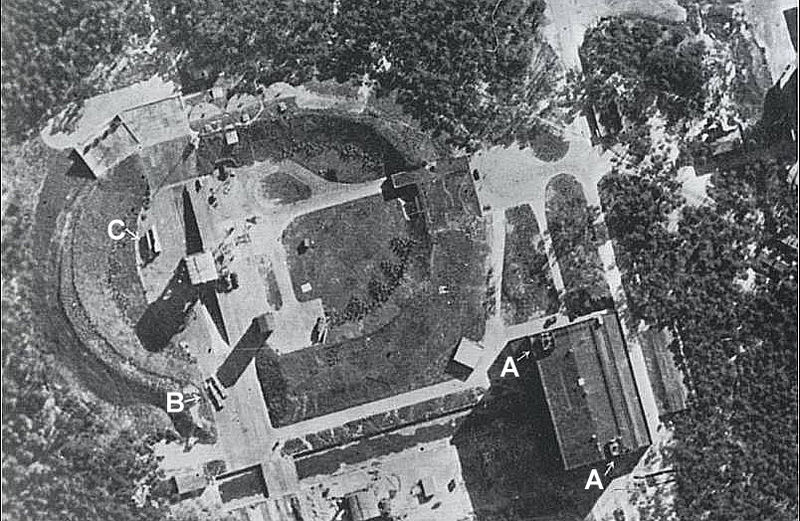At left Peenemunde: a secret base used to launch weapons against the British civilian population in WWII.
Allies used bombers against the wartime industry in Germany (i.e. civilians) but we call the targets "industrial centers of production" because the allies won.
Tonight: secrets.
Secrets are revealed either because of the use of the secret or because people involved serve themselves instead of the secret.
How do you keep a secret? Don't tell anyone.
How do you keep a secret from being told? Kill everyone who knows it.
Now, several books have used this premise successfully. A killer is hunting down everyone who knows a secret and its up to the detective to determine the pattern ultimately but discovering the secret. Amusing.
We are writers. What if we can find a story in the secret itself?
I love mad scientists. I'm cannot claim to be one (the scientist part) but I work on the engineering side as it were...I apply scientific knowledge in a way to create meaning and use. It's fun. It's engaging. It keeps people from asking "what is it you do again?" at parties.
No, I'm suggesting here we use the literary device of a secret and keep it a secret. Don't tell the reader. They don't have to know.
That's right, no big "reveal." Sure find the murderer. Absolutely track down where the bodies might have gone.
The underlying causation? Maybe it doesn't matter.I'm not suggesting the old saw of "he's evil" as motivation. I'm suggesting that you the writer know the whole story but you don't have to tell it to a reader.
Here's what I've got in the hopper. I've a family whose patriarch is indeed a mad scientist and works in a lab - his own - in a complex 19 stories beneath the Empire State building. I'm not telling the reader why a lab is in lower Manhattan. I'm not clarifying who might fund such an endeavor. I'm starting with "I know and you don't" and going from there. The setting is fantastic and the convoluted process of character evolution is amusing. I won't however reveal the mythology behind the existence. Sometimes, there are things a reader doesn't know.
By not telling the reader the whole business (which I do know) , I'm focusing on the parts of the story I want to make clear: The heroine. The conflict arcs. The transformative nature of the characterization.
Why do the character live near the lab? Why does the lab have to be here instead of a warehouse in New Jersey? Why are mad scientists at large?
Live with it. The facts are called secrets. You don't get to know them all. You get to know what I'll tell you. If I do it right, that's enough.
Now, I'm off to the secret lair to write. You should head that way, too.


2 comments:
I absolutely *love* secrets. I think most of my mysteries are about uncovering secrets more than uncovering the murderer.
And there are some secrets that *don't* have to be revealed--you're so right. Sounds like you've got a terrific MacGuffin in your story...and sounds like a great premise!
I'm excited to be back on this trail after writing a not very dynamic version a year ago.
It is a blast setting a perceptive character among the mad scientist community. The family dynamics alone are writer heroin.
Now, to make the story better with synthetic rats.
Why are you looking at me that way? No, really. Rats make it better. Really.
Post a Comment